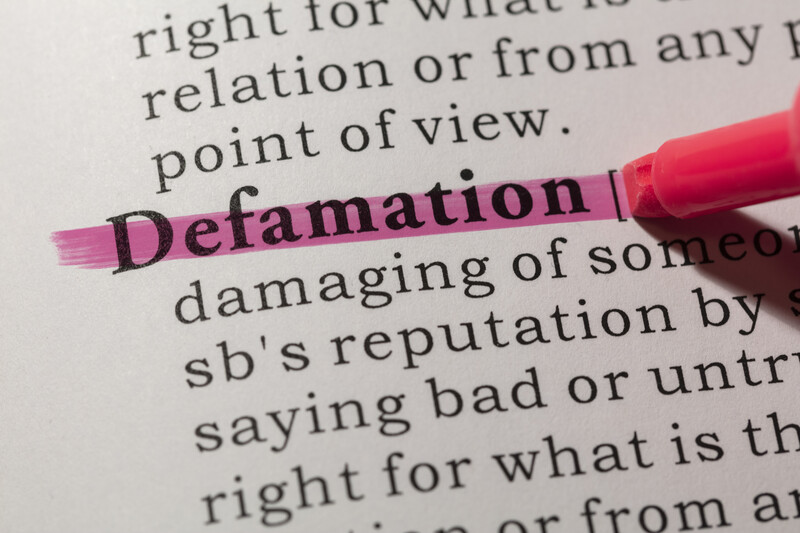
Background
The plaintiff was working as a locum psychiatrist at Mackay Base Hospital when the senior medical officer in psychiatry who he reported to told him that his employment was terminated in consequence of a letter of complaint from junior doctors at the hospital about his performance. A notification was made to the Health Ombudsman, pursuant to s141 of the Health Practitioner Regulation National Law (Qld) (the National Law), which resulted in an investigation by the Australian Health Practitioner Regulation Agency (AHPRA).
It took more than a year for AHPRA to complete its investigation, during which time the plaintiff was forbidden from contacting the senior medical officer in psychiatry, relevant patients and their medical teams, or from disclosing information provided to him in the course of the notification process. The outcome of the investigation was that AHPRA would take no further action against the plaintiff. AHPRA concluded that no attempt had been made by the hospital or the senior medical officer to independently investigate or substantiate the allegations raised against the plaintiff which were relied upon to terminate his employment.
The plaintiff had waited for the AHPRA investigation to conclude before commencing defamation proceedings against the hospital and the senior medical officer for the notification made to the Health Ombudsman. Before commencing the defamation proceedings, he was not previously aware that the statutory limitation period for an action for defamation was one year from the date of publication. So he made an application to extend the limitation period.
The legislation provided that, for defamation actions, if the Court is satisfied that it was not reasonable in the circumstances for the plaintiff to have commenced an action in relation to the matter complained of within one year from the date of the publication, then the Court must extend the limitation period by up to three years.
The respondents resisted the plaintiff’s application to extend the limitation period, raising two arguments:
Mistaken solicitor advice
The solicitor advice that the plaintiff had received was from a solicitor appointed by his insurer to act on his behalf in the AHPRA investigation. The solicitor was not engaged to act for the plaintiff in any defamation proceedings and he told him this. The plaintiff understood the solicitor advice he received to be that he should not commence defamation proceedings until after the AHPRA investigation had completed. The solicitor maintained that he did not give such advice but acknowledged that there had been extensive discussions between them about the possibility of a defamation claim.
The trial judge found that when the plaintiff received these solicitor advices he was highly distressed and inflicted by obvious deteriorating mental health issues and concerned about vindication, and that objectively viewed the advice was capable of the interpretation that he should not sue while the AHPRA investigation was ongoing, and so the plaintiff’s mistake about the advice was not unreasonable in the circumstances.
First instance decision
The trial judge was satisfied that the limitation period must be extended, but also considered that the respondents were correct that the defamation proceedings were bound to fail on the basis of the absolute privilege defence. So she extended the limitation period but only to a date that preceded the commencement of the defamation proceedings. Whilst the limitation period was extended, the extension was futile – it was not extended enough for the defamation proceedings to not remain statute barred.
Absolute Privilege vs Good Faith
An absolute privilege attaches to all statements made in the course of judicial proceedings, whether made by parties, witnesses, legal representatives, members of the jury or by the judge. An absolute privilege also attaches to all statements made in the course of quasi-judicial proceedings, i.e. proceedings of tribunals recognised by law and which act in a manner similar to that in which a Court of justice acts. It exists for reasons of inherent necessity – described as being indispensable to the effective performance of official functions and the judicial process.
The trial judge was persuaded that the notification to the Health Ombudsman was the commencement of a quasi-judicial process for which it was necessary that his publication be protected by absolute privilege, thereby providing a complete bar to the plaintiff’s defamation proceedings.
The Court of Appeal disagreed with this conclusion finding that the regime created by the National Law in Queensland is not one for which there is demonstrated necessity of the kind that dictates that judicial proceedings are absolutely privileged. The absence of that necessity was demonstrated by s237 of the National Law which provides privilege to a person, that is – a protection from personal liability for anything done or omitted to be done, including for defamation – who, in good faith, makes a notification under the Law. By 236(2), any liability resulting from an act or omission that would otherwise attached to protected person attaches instead to the National Agency.
The Court of Appeal ordered that the limitation period be extended to the date on which the proceeding was commenced.
This decision provides welcome clarity as to the extent of the absolute privilege defence to defamation proceedings. The inherent necessity of absolute privilege is so that persons involved in judicial and quasi-judicial proceedings, whether judge, jury, parties, witnesses or legal representatives, are able to discharge their duties freely and without fear of civil action for anything said by them in the course of the proceedings. Were civil liability could be capable it would impede inquiry as to the truth and justice of the matter and jeopardise the safe administration of justice.
The qualified protection provided by s237 imposing the requirement of good faith can be seen to be intended to strike a balance between the interests involved and to give proper weight against improper or misguided notifications under the National Law.
Stone Group Lawyers acted for the successful appellant, Dr Akbari.

Berren Hamilton is a Special Counsel (Litigation) at Stone Group Lawyers. He is an Accredited Specialist in Commercial Litigation with the Queensland Law Society. He was admitted to practise in Queensland in 2001.
"*" indicates required fields
Suite 31106, Level 11 Southport Central Commercial Tower 3,
9 Lawson Street, Southport QLD
Riverside Centre
Level 37, 123 Eagle Street
Brisbane City, QLD 4000
Ⓒ 2024 Stone Group Lawyers | Site By Merge

